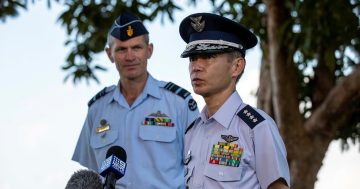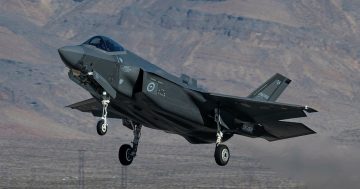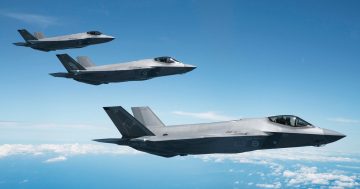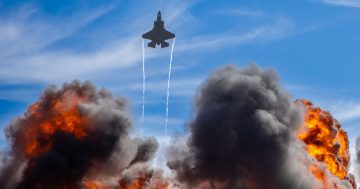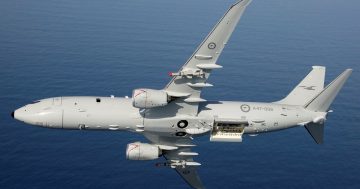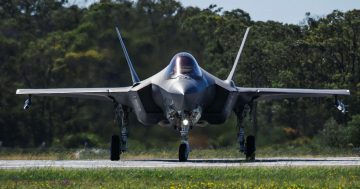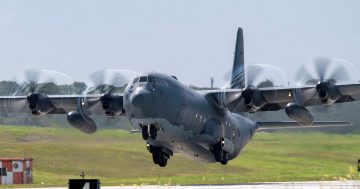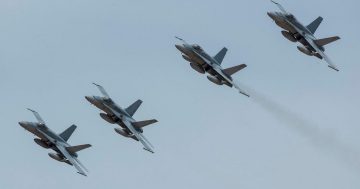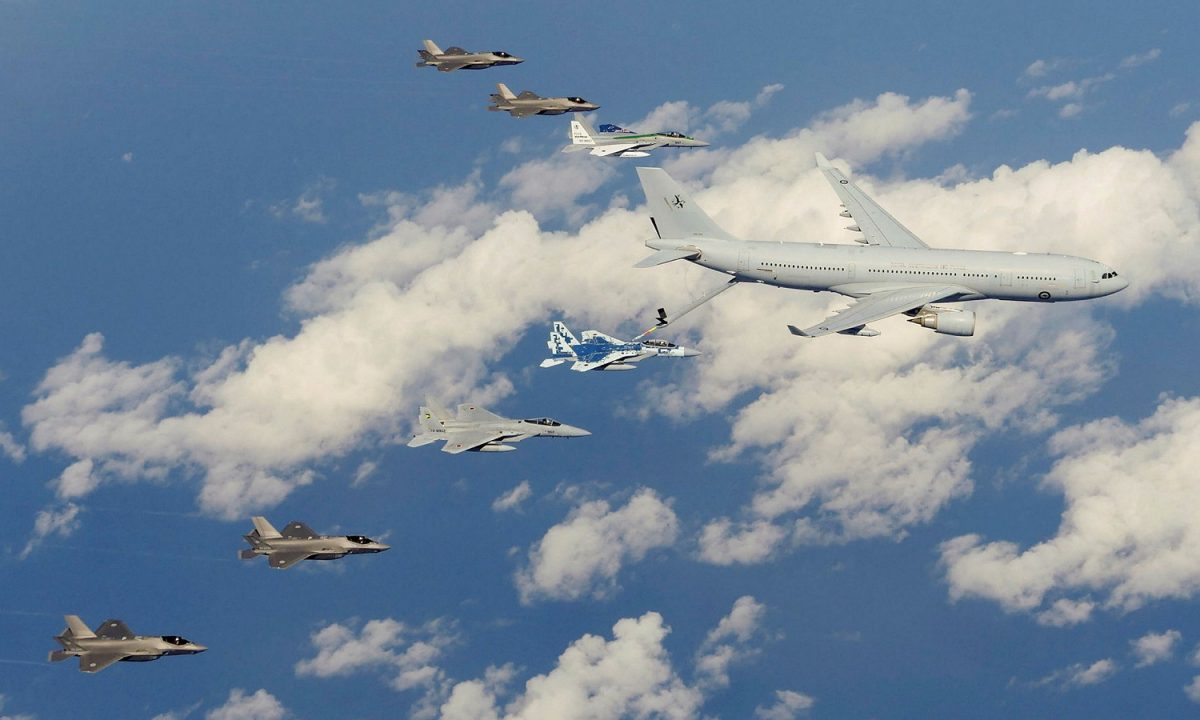
RAAF F-35A and JASDF F-35As and F-15Js in formation behind an RAAF KC-30A tanker transport over the Sea of Japan while an F-15J refuels. Photo: ADF.
The Royal Australian Air Force’s No 75 Squadron and its Lockheed Martin F-35A Lightning fighter jets based at Tindal in the Northern Territory have had a busy few weeks.
Since early August the squadron has been training with several of Australia’s regional neighbours, home and abroad, including a visit from the Japanese Air Self Defense Force, and deployments to Japan, the Philippines, and Indonesia.
No 75 Squadron is considered the RAAF’s frontline combat unit due to its forward-deployed basing location. The rest of the RAAF’s F-35A force is based at RAAF Williamtown near Newcastle in NSW, while its Boeing F/A-18F Super Hornets and EA-18G Growlers are based at RAAF Amberley near Brisbane.
The busy stretch started on 26 August with a visit to Tindal of two Japanese F-35As from the JASDF’s 301st Tactical Fighter Squadron led by its commander Lieutenant Colonel Okamoto Kazuhito and supported by a JASDF KC-767J tanker.
The 6400 km deployment was mainly a goodwill visit, the first to be conducted under the new Japan-Australia Reciprocal Access Agreement (RAA). The two aircraft conducted various low-intensity flying exercises around the Northern Territory’s vast Delamere and Bradshaw training ranges, before returning to Japan on 29 August.
Following the JASDF F-35As were six of 75SQN’s F-35As which deployed to Komatsu Air Base on Japan’s north coast for the bilateral air combat activity Exercise Bushido Guardian.
While enroute to Japan, the RAAF jets stopped in the Philippines to support Exercise Alon, a multi-national maritime exercise between Australia, Philippines, and the US in the South China Sea and on nearby islands.
“We’re the eyes in the sky for the troops, providing vantage points and enemy locations,” Flight Lieutenant Andrew Haes said. “It’s the first time the F-35A has been to the Philippines and it’s great to show other forces the capabilities RAAF can provide.”
Deployments to austere destinations such as the Philippines allows the RAAF to test its ability to support the aircraft for exercises or operations away from main operating bases. Because of the F-35A’s advanced capabilities, part of that includes use of the containerised deployable operations centre – and all of the security that comes with it.
The Philippines deployment was also supported by an RAAF C-130J Hercules fitted with a satellite communications capability which allowed it to act as a secure comms hub while in close proximity to Chinese forces in the South China Sea.
“During this exercise we trained how to lower our logistics footprint when operating the F-35,” Flight Lieutenant Haes said.
“That’s where the C-130 Hercules helped us to fit everything into one aircraft. Taking any aircraft overseas, in a different airspace with different rules can be tricky, but it is really rewarding when it does pay off in the end.”
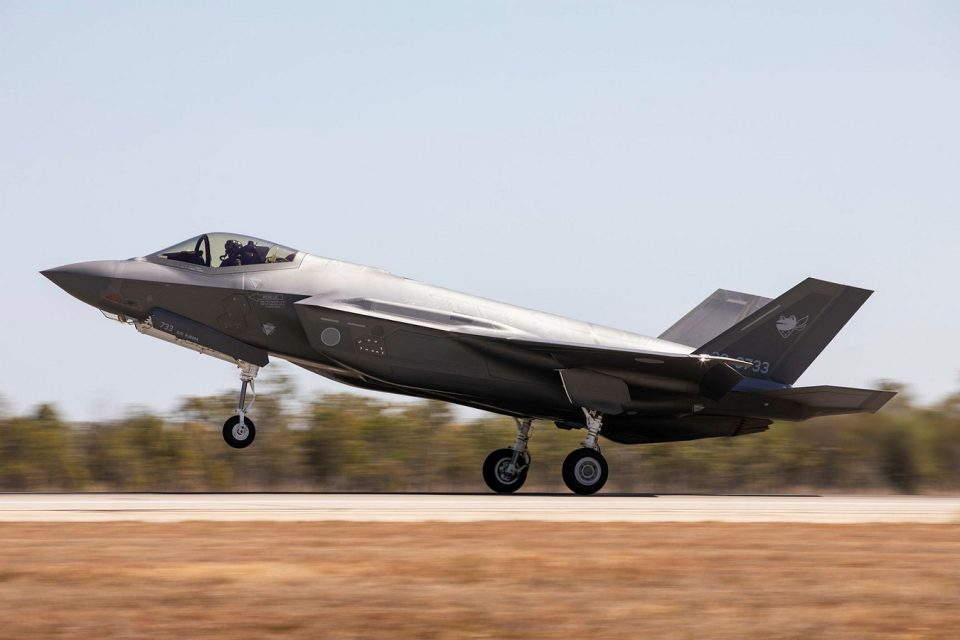

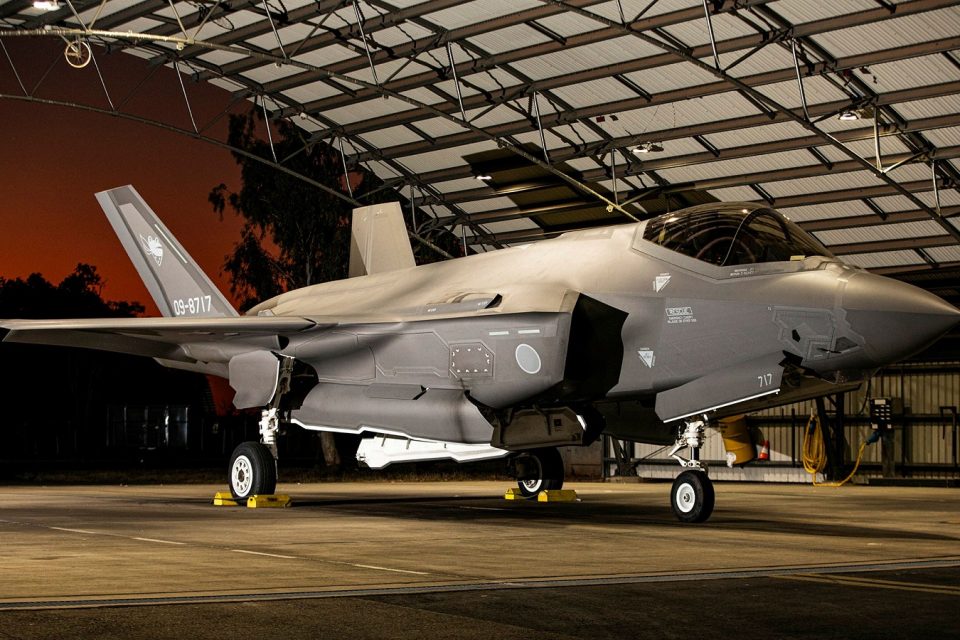
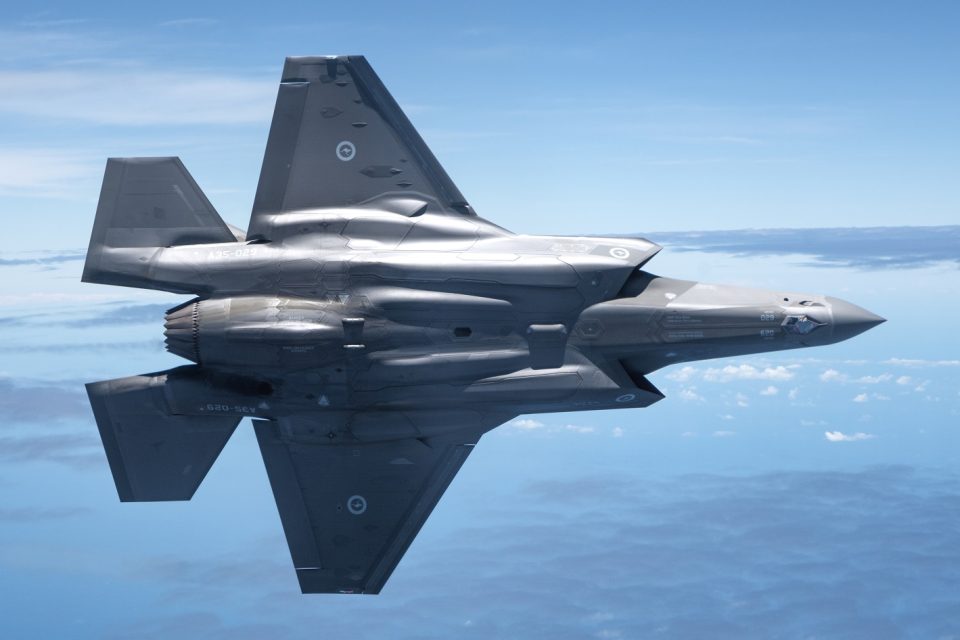

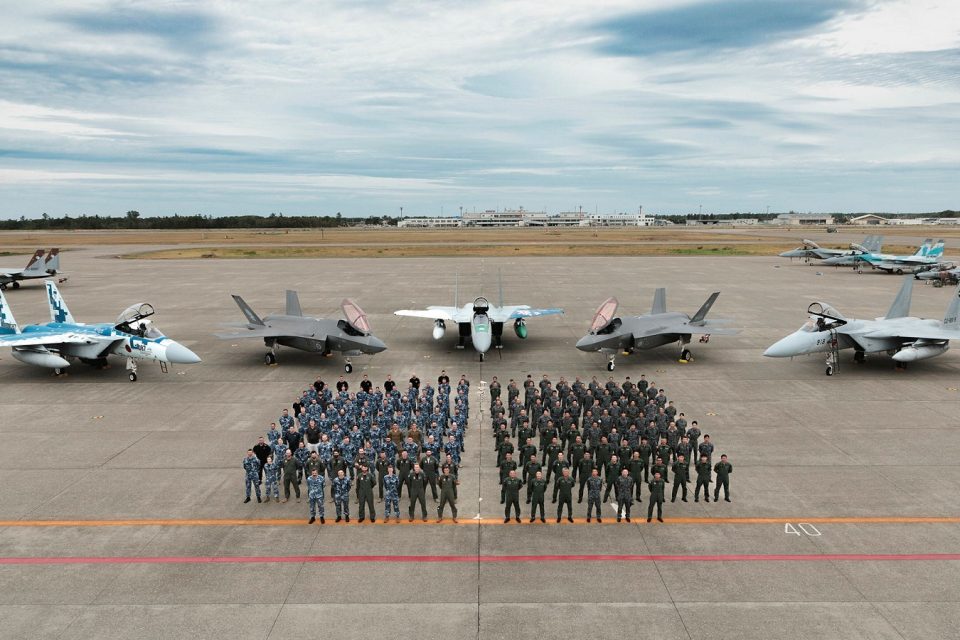


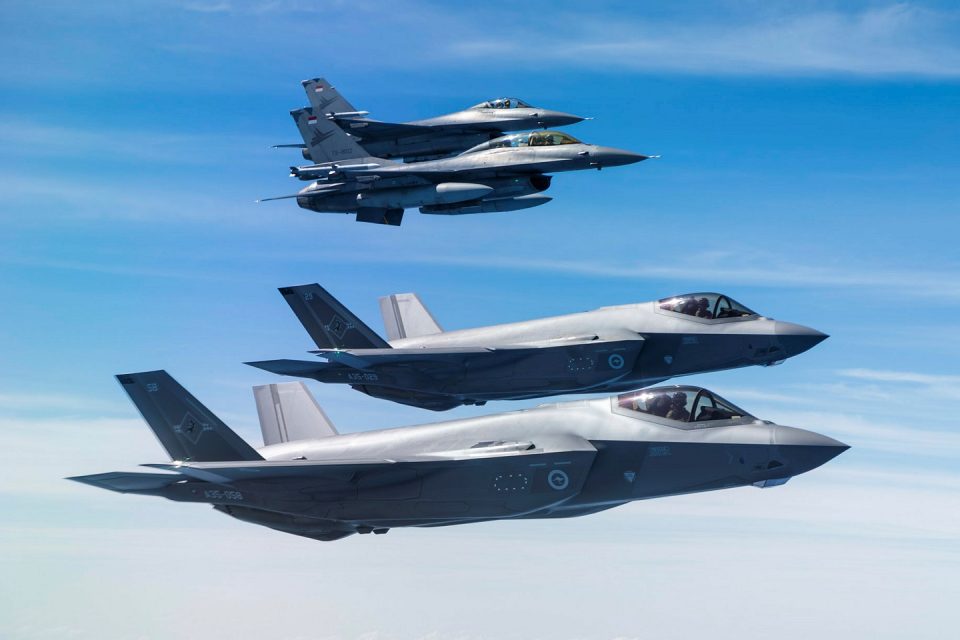
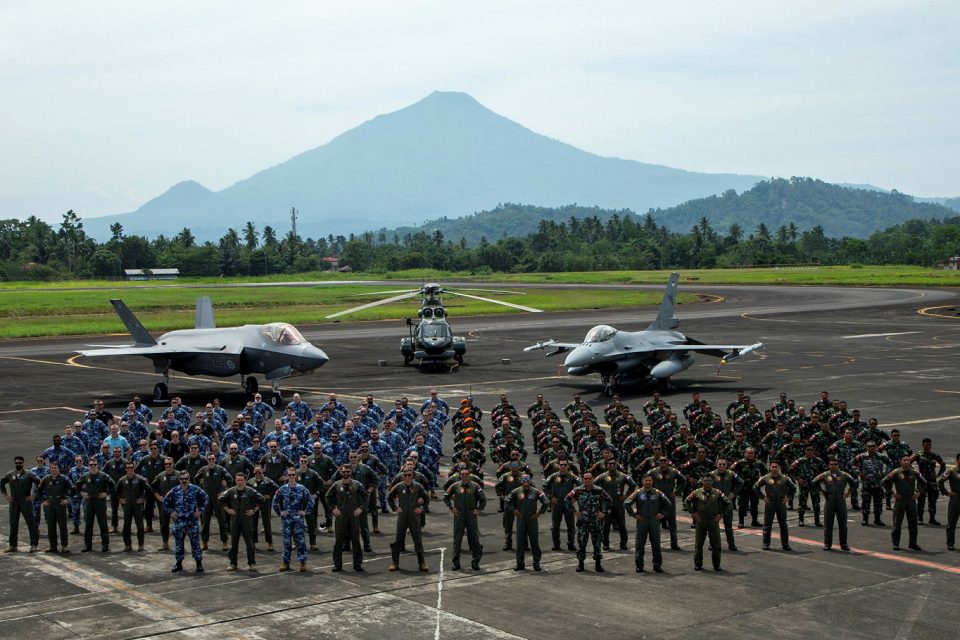
Next stop was Japan where 75 Squadron and an RAAF KC-30A tanker transport participated in a two-week air-combat Exercise Bushido Guardian with JASDF ‘Koku Jieitai’ F-35As, Mitsubishi F-2, and F-15J Eagle fighters.
“Exercising with our colleagues in the Koku Jieitai provides us an opportunity to deepen our understanding of each other, broaden our strategic relationships, and helps us to become more interoperable,” Task Group Commander Wing Commander Melanie Buswell said. “Our shared values are the foundation for our partnership and mateship.”
Flight Lieutenant Mitchell Delaney said unfamiliar surrounds helped hone their skills.
“When you operate from home base, you can focus a lot on the tactics,” he said. “But coming to an unfamiliar aerodrome, unknown local procedures, it really tests your fundamental skills and exercises things you haven’t necessarily worked on before.
“It gives us the confidence that we can take these jets anywhere we need to.
“I thought the language barrier would be a major lesson, but interestingly in the air, pilot speak is pilot speak and it has been seamless. I think a lot of the lessons are an increase in confidence that we can all just get airborne and work together effectively.”
On the way home from Japan, 75 Squadron participated in Exercise Elang Ausindo 2023 with six Indonesian Air Force Lockheed Martin F-16 fighters at Manado on the northern tip of the island of Sulawesi from 18 to 28 September.
The Ausindo series of exercises is a regular activity designed to enhance interoperability and cooperation between Australian and Indonesian military forces; 2023 marked the 30th anniversary of the event and the first time RAAF F-35As had deployed to Indonesia.
“Although we are different in many ways, we also have very much in common and we share many security interests as friends and close neighbours,” Australian Air Attaché to Indonesia Group Captain Kenneth Bowes said.
“For this reason, and so that we can continue to work together for the benefit of both of our nations, it is important that we fly, train and operate together.”












